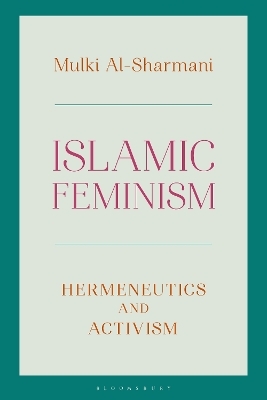
Islamic Feminism
Hermeneutics and Activism
Seiten
2024
Zed Books Ltd (Verlag)
978-1-78360-634-4 (ISBN)
Zed Books Ltd (Verlag)
978-1-78360-634-4 (ISBN)
An incisive study of Islamic feminist scholarship and of the role of ordinary Muslim women in shaping Islamic attitudes, which upends many of our preconceptions about the religion.
Mulki Al-Sharmani undertakes a close textual analysis of the hermeneutics of selected Islamic feminism scholars as they engage with the Qur’an, Hadith, and different textual genres in Islamic interpretive tradition. She focuses on the relevant works of nine prominent scholars located in North America, Egypt, Morocco, and South Africa.
Bringing their works into conversation with one another, Islamic Feminism critically examines the epistemological and methodological contributions and challenges of these scholars. Al-Sharmani shows how these scholars’ engagements with the question of gender also yields new insights into the interplay between Islamic theology, ethics, and law. Drawing on extensive multi-sited ethnographic research, Al-Sharmani examines the societal significance and limits of the studied scholarship and how it informs and is informed by multidimensional Muslim gender activism in both global and local contexts. Towards the latter aim, Al-Sharmani focuses on two case studies: the global movement Musawah, and Egyptian Islamic feminism in the aftermath of the 2011 Revolution.
Mulki Al-Sharmani undertakes a close textual analysis of the hermeneutics of selected Islamic feminism scholars as they engage with the Qur’an, Hadith, and different textual genres in Islamic interpretive tradition. She focuses on the relevant works of nine prominent scholars located in North America, Egypt, Morocco, and South Africa.
Bringing their works into conversation with one another, Islamic Feminism critically examines the epistemological and methodological contributions and challenges of these scholars. Al-Sharmani shows how these scholars’ engagements with the question of gender also yields new insights into the interplay between Islamic theology, ethics, and law. Drawing on extensive multi-sited ethnographic research, Al-Sharmani examines the societal significance and limits of the studied scholarship and how it informs and is informed by multidimensional Muslim gender activism in both global and local contexts. Towards the latter aim, Al-Sharmani focuses on two case studies: the global movement Musawah, and Egyptian Islamic feminism in the aftermath of the 2011 Revolution.
Mulki Al-Sharmani is Professor of Islamic Studies at the University of Helsinki, Finland.
Acknowledgments
Note on Translations and Transliteration
1 Islamic Feminism Revisited
2 Trajectories and Perspectives
3 Hermeneutics of Deconstruction
4 Hermeneutics of Reconstruction: Centering Theology and Ethics
5 Hermeneutics of Reconstruction: Rereading Gender in Texts
6 Islamic Feminism and Its Discontents
7 Transnational Islamic Feminism Activism: Musawah
8 Local Islamic Feminism Activism: The Politics of Reform in Egypt
9 Where We Are and Where We Go
References
Index
| Erscheinungsdatum | 29.10.2024 |
|---|---|
| Sprache | englisch |
| Maße | 156 x 234 mm |
| Themenwelt | Geisteswissenschaften ► Religion / Theologie ► Islam |
| Sozialwissenschaften ► Politik / Verwaltung ► Politische Theorie | |
| Sozialwissenschaften ► Soziologie ► Gender Studies | |
| Sozialwissenschaften ► Soziologie ► Spezielle Soziologien | |
| ISBN-10 | 1-78360-634-7 / 1783606347 |
| ISBN-13 | 978-1-78360-634-4 / 9781783606344 |
| Zustand | Neuware |
| Haben Sie eine Frage zum Produkt? |
Mehr entdecken
aus dem Bereich
aus dem Bereich


